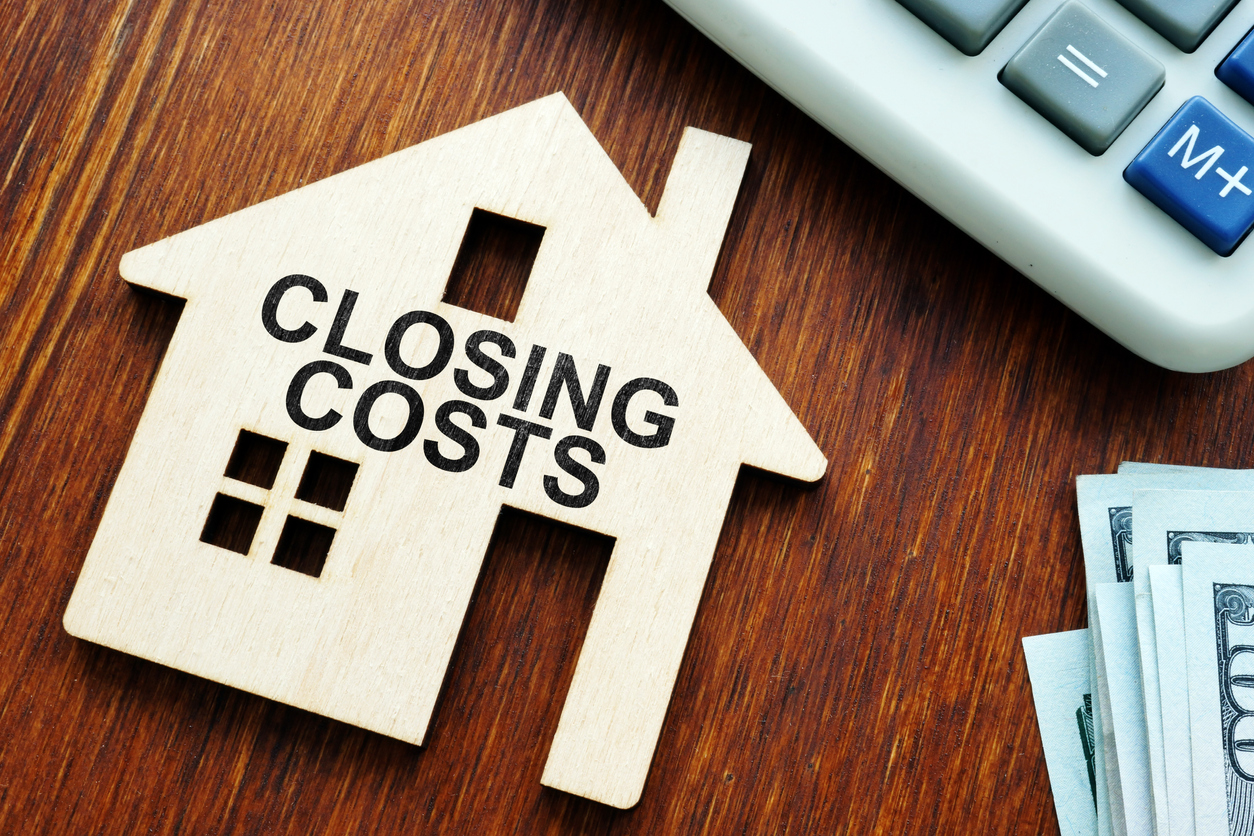[et_pb_section bb_built=”1″ _builder_version=”3.0.47″][et_pb_row _builder_version=”3.0.48″ background_size=”initial” background_position=”top_left” background_repeat=”repeat”][et_pb_column type=”4_4″][et_pb_text _builder_version=”3.18.2″]
Closing Costs To Consider When Buying A Home in Farmington Hills MI
Buying a home in Farmington Hills MI involves more money out-of-pocket than just the down payment. There are also closing costs to consider. Closing costs refer to the charges and fees that are paid when a house purchase is finalized.
Typically, the buyer’s closing costs include mortgage insurance, homeowner’s insurance, appraisal fees, property taxes, reserves to set up escrow, and various fees that lenders typically charge, among others – while the seller covers ownership transfer fees and pays a commission to their real estate agent.
Farmington Hills MI Homes for Sale
The total cost can often come as a shock to first-time homebuyers who may only be looking at coming up with the amount of their down payment. Understanding what closing costs cover and budgeting for them will smooth out the final stretch of the home buying process. Lender fees can be the most significant of all closing costs.
How much can a buyer expect to pay?
Average closing costs for the buyer will typically run between 2% and 5% of the loan amount. On a $300,000 home purchase, for example, you could expect to pay from $6,000 to $15,000 In closing costs. Much depends on the points and origination fees a lender charges to make the loan. The points, together with any origination fee will be included in the Origination Charges section of your Loan Estimate.
The government requires lenders to list closing costs and the amount of cash you’ll need to have on hand at the time of settlement on every mortgage applicant’s Loan Estimate. The lender should provide the loan estimate to potential borrowers within three days of submitting an application. The Loan Estimate details the terms of your loan, including:
- Expenses, with clear “yes” or “no” answers to important questions, such as whether each amount can increase after closing, whether your loan includes a prepayment penalty or a balloon payment, and which expenses are included in your escrow account
- The projected monthly mortgage payment, including taxes, insurance, and other assessments
- Estimated closing costs and the amount of cash you’ll need to have on hand at the time of settlement
- Information on services you can, and cannot, shop for — such as pest inspections, survey fees, and the home appraisal
The Closing Disclosure provides the same information as the Loan Estimate but in final form. This means that it contains the locked-in costs of your loan and the specific amount you’ll need to pay at closing. You’ll receive this document three days before your scheduled loan closing.
Non-recurring and recurring closing costs
There are over 35 closing cost items that you may be required to pay, which can be separated into two categories: non-recurring and recurring:
Non-recurring closing costs are paid once at closing and never again. Non-recurring closing costs are the fees that most mortgage borrowers are familiar with and may include the following items:
- Title policy
- Escrow or closing
- Appraisal
- Credit report
- Notary
- Wire fees
- Courier and delivery
- Attorney fees
- Endorsements
- Recording
- Jurisdictional transfer taxes
- Home protection plan
- Natural hazard disclosure
- Home inspection
- Fees paid to the lender in conjunction with the loan
Although non-recurring closing costs are set by the specific service provider, you may be able to comparison shop and negotiate some of the fees to lower your closing costs.
Recurring closing costs are those charges that you will pay again and again. They are paid either monthly or yearly as time goes on. Recurring closing costs include items such as:
- Fire insurance premium
- Flood insurance (if required in your area)
- Property taxes
- Mutual or private mortgage insurance premiums
- Prepaid interest
- HOA fees
You will be required to pay a portion of these ongoing expenses when the loan closes. Additionally, depending on the time of year your loan closes and your local property tax rate, the amount of property tax you are required to pay at closing can be significant, especially if your loan closes earlier in the year and you’re required to pay several months of property taxes in advance.
If you are required to use an impound or escrow account after your loan closes for your mortgage payment, property tax, homeowners insurance, and other expenses, you may also be required to pre-pay certain expenses. These additional recurring closing costs are due at closing.
Seller Credit
Buyers with limited funds can utilize a Seller Credit to help significantly reduce their out-of-pocket costs and enable them to purchase a property they would be unable to buy otherwise. A seller credit also referred to as: sales concessions, seller paid costs, or seller contributions – is money the seller gives the buyer to pay for closing costs. Some or all of the closing costs, including your property taxes and personal hazard/fire insurance, may be paid for by the seller.
If the seller pays all your closing costs, you will only pay your down payment. By law, the seller cannot pay for any portion of your down payment. Also, homebuyers cannot receive cash from the seller – not even one dollar.
In order to get a seller credit, you must have it included in your Purchase and Sale Agreement. The lender doesn’t handle the negotiation of a seller credit. Ask your Farmington Hills MI REALTORⓇ to negotiate it for you (it’s part of the price negotiation of the home).
A seller credit allows the buyer to finance his closing costs into the new loan amount. The lender must approve the credit and the home’s value must merit the increase in the sale price as determined by an appraisal. Be sure to always check with your lender before you negotiate an offer that involves a seller credit because the lender might not allow it.
Lenders limit what the buyer and a seller credit can pay for. For example, the lender might limit your credit to 3% of the purchase price if you’re financing 100% of the purchase price. Or, depending on your FICO score and the amount of your down payment, the lender might allow a seller to credit you as much as 6% of the purchase price.
Help with closing costs
There are also grants and loans available to help with closing costs. If you qualify, you could receive thousands of dollars to help with your mortgage costs. Oftentimes, closing cost assistance is offered by a HUD-approved local or state housing commission, or a mortgage lender. These agencies set aside a certain amount of funds for closing cost grants for low-to-moderate-income borrowers.
Check out the resources below to locate and learn about programs you may qualify for:
- Down payment assistance programs by state
- First time home buyer programs by state
- State Housing Finance Authorities
Requirements to qualify for closing cost assistance vary by program, and income caps and maximum loan amounts are common. You don’t always have to be a first-time homebuyer to get financial aid.
Many programs are available to repeat buyers or former homeowners who haven’t owned property in the last 3 years.
Partner with Highly-rated Farmington Hills MI REALTORⓇ -Tom Gilliam
With over 20 years of real estate experience, Tom Gilliam is proud to be a trusted Farmington Hills MI REALTORⓇ – offering his guidance and expertise to area home buyers and sellers. Tom understands that buying or selling a home is a significant financial and life decision and that you are looking for someone you can trust.
Farmington Hills MI Homes for Sale
You can be assured that Tom will protect your best interests, advocate for you, negotiate on your behalf, and guide you towards the best results possible. Get the process started today by contacting Tom directly at (248) 790-5594 or you can get in touch with him by email.
Tom Gilliam, REALTOR®
RE/MAX Classic
29630 Orchard Lake Rd.
Farmington Hills 48334
Direct: 248-790-5594
Office: 248-737-6800
Email: Tom @ Homes2MoveYou.com
License #314578
Farmington Hills MI
Article sources:
- Michigan State Housing Development Authority. “MI Home Loa
- Consumer Financial Protection Bureau. “What Fees or Charges Are Paid When Closing on a Mortgage and Who Pays Them?
- NAIC. “The Smart Consumer’s Guide to Reducing Closing Costs
- FDIC. “Down Payment and Closing Cost Assistance
- Consumer Financial Protection Bureau. “Learn About Loan Costs
- Quicken Loans. “What Are Mortgage Points And When Are They Worth It?
- American Financing. “How Do Seller Concessions Work?
- Consumer Financial Protection Bureau. “I Am Getting a Mortgage Loan and I Have Heard the Term ‘Trid.’ What Does ‘Trid’ Mean?
- Quicken Loans. “What Are Mortgage Points And When Are They Worth It?
- Consumer Financial Protection Bureau. “Comment for 1026.38 – Content of Disclosures for Certain Mortgage Transactions (Closing Disclosure)
[/et_pb_text][/et_pb_column][/et_pb_row][/et_pb_section]

